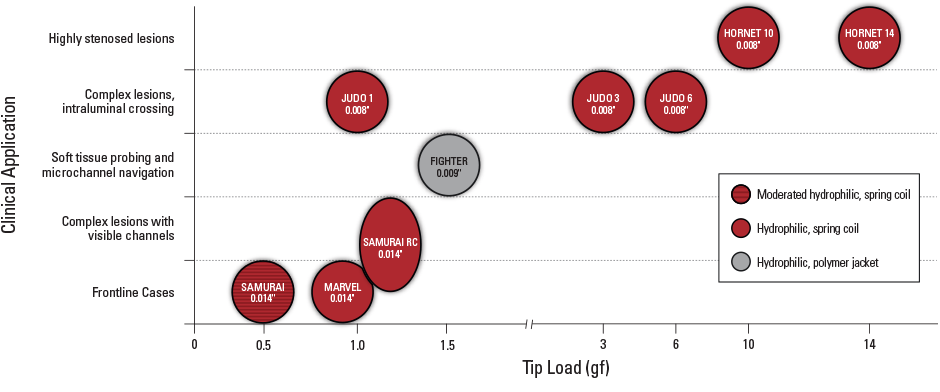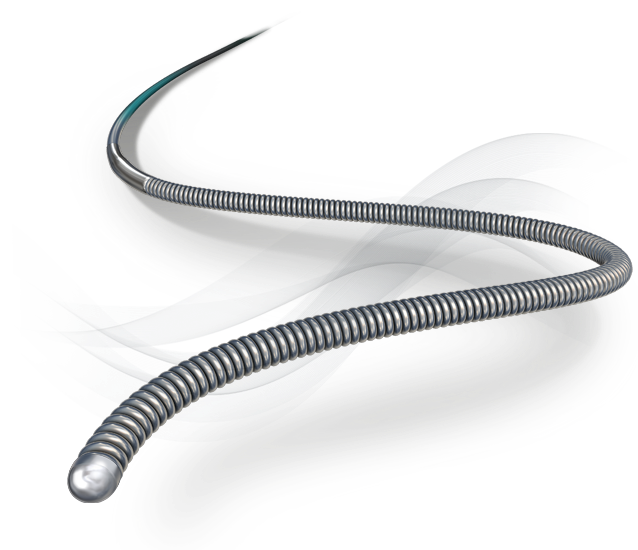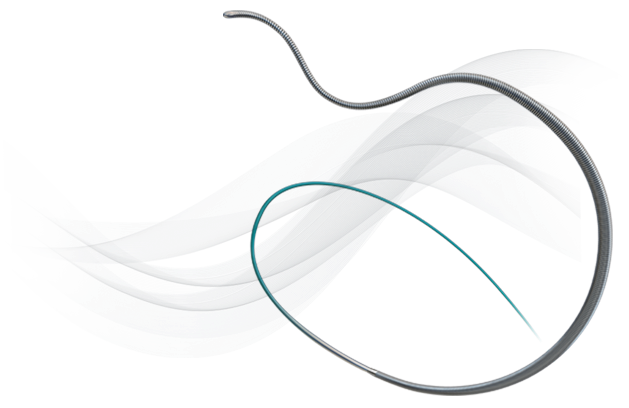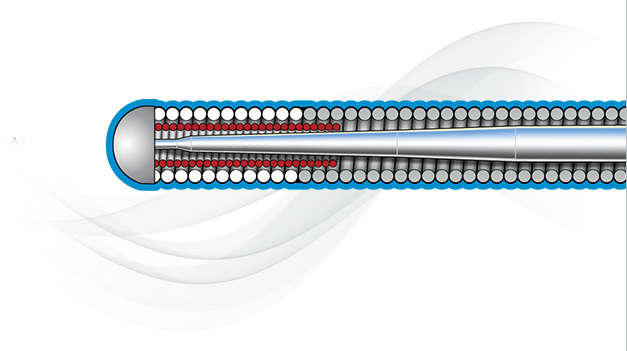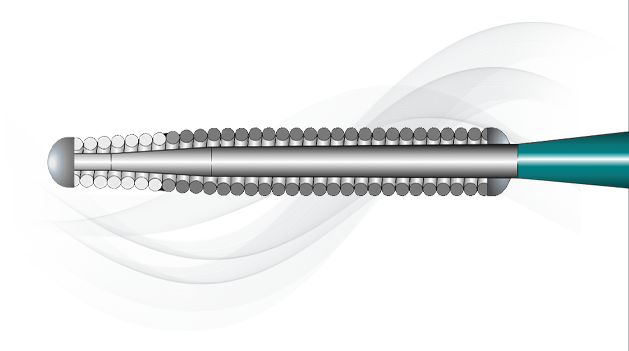Medical Specialties > Interventional Cardiology > Coronary Guidewires ![]()
Coronary Guidewires
Guidewires are as critical as any tool in the interventional cardiology toolbox-without the right guidewire to access and deliver devices to a lesion, successful treatment through PCI is impossible. The right guidewire can lead to improved outcomes, reduced procedure times, and increased procedural throughput.
SENTAITM Guidewire Family
Torqueability
To safely navigate even the most challenging anatomy and access hard-to-reach lesions.
Crossability
To enable you to cross, and ultimately treat, even the most challenging and resistant lesions.
Durability
To enable treatment of multi-vessel cases with one wire, saving the time and expense of using additional wires.
Rail Support
For successful device delivery without the need for buddy wires or wire exchanges.
SAMURAI Guidewire
Workhorse wire with ICT for easy tip shaping, 1:1 torque, and optimal tactile feedback
- Inner Coil Technology
- Moderated hydrophilic coating
MARVEL Guidewire
Workhorse wire with hydrophilic coating, outstanding torque, and moderate support
- Core-to-tip design
SAMURAI RC Guidewire
Versatile wire with ICT for frontline cases, visible channels, or collateral crossing
- Inner Coil Technology
- Hydophilic coating and extended spring coil
FIGHTER Guidewire
Polymer jacketed wire for loose tissue tracking, probing complex lesions, and knuckling
- Clear polymer jacket and hydrophilic coating
- Tapered 0.009” Core-to-tip design
- Micro-stamped core
HORNET 10 Guidewire
Penetration wire with excellent control
- Smallest tip profile of any coronary guidewire (0.008")
HORNET 14 Guidewire
Penetration wire with excellent control and more penetration force
- Built to cross
- Smallest tip profile of any coronary guidewire (0.008")
JUDOTM Guidewires
Part of the SENTAITM Guidewire Family
Designed with Micro EMT technology to have an ultra low crossing profile and exceptional steerability, JUDO Guidewires are ideal intraluminal crossing wires for complex lesions.
Superb ability to probe and cross complex lesions and fibrous tissue.
Outstanding flexibility to maintain position on the true lumen while maneuvering through complex lesions and tortuosity.
Exceptional torque response for precision steering in tight lesions.
JUDO 1 Guidewire
Soft intraluminal crossing wire for antegrade microchannels
- Smallest Tip on the Market (0.008”)
- Micro EMT Technology
JUDO 3 Guidewire
Intermediate intraluminal crossing wire for fibro-calcific lesions
- Smallest Tip on the Market (0.008”)
- Micro EMT Technology
JUDO 6 Guidewire
Extra penetration with excellent steerability in tight lesions
- Smallest Tip on the Market (0.008”)
- Micro EMT Technology
Guidewire Technology
Inner Coil Technology
The advanced design of the stainless steel core and Inner Coil Technology provides a unique combination of exceptional torqueability, rail support, and shape retention.
- Stainless steel inner coil affixed directly to the distal end of the guidewire core
- Improved durability and ease of shaping
- Exceptional torqueability without whipping
Micro EMTTM Technology
MICRO EMT exactly matches the taper of the core and coil, allowing for a lower profile and a more flexible core, leaving almost no room for the core to move within the coil, resulting in 1:1 torque.
- Entry: The smallest tip on the market (0.008”) and the long taper (6 cm) facilitate easy lesion entry in even the most complex lesions.
- Maneuverability: A flexible distal shaft enables excellent intraluminal navigation in complex lesions, with minimal perforation risk.
- Torque: With exactly matched tapers, the core and coil move as one, eliminating whip and empowering precise steerability.
Guidewire Selection & Clinical Application
